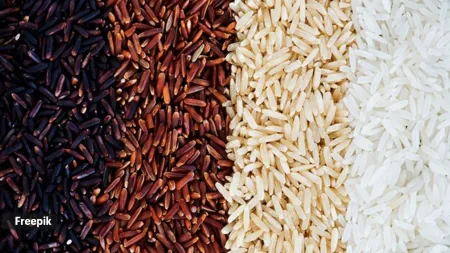Can green tea cause weight loss? Nutritionists debunk 3 common myths
Green tea has been marketed as a weight loss solution for the longest time. It is believed that it is much healthier than your regular cup of tea or coffee. But do these claims hold any merit? Recently, Nmami Agarwal, a nutritionist took to Instagram to share 3 common myths about green tea. “While green tea is celebrated for its health benefits, it’s essential to acknowledge that no single beverage holds a monopoly on nutritional superiority,” she wrote in the caption.
1. The more, the better
 How many cups of green tea should you drink? (Source: Freepik)
How many cups of green tea should you drink? (Source: Freepik)
The common perception is that consuming multiple cups of green tea throughout the day can yield better results for your overall well-being. However, Agarwal pointed out that excess consumption of green tea can upset stomach acid levels and cause hyperacidity.

Sangeeta Tiwari, clinical nutritionist, Artemis Lite, Delhi advises individuals to refrain from consuming large amounts as it can lead to nausea, vomiting, diarrhea, headaches, and loss of appetite due to presence of caffeine. According to studies, three to five cups of green tea per day is suitable, but the optimal amount may vary from person to person.
2. Green tea is caffeine-free
Contrary to popular belief, green tea does contain high caffeine content, which can keep you up till late, said Agarwal. If you’re sensitive to caffeine, Tiwari cautions side effects like anxiety, tremors, irritability and sleeping problems because of the presence of caffeine.
3. Green tea helps in weight loss
According to Agarwal, green tea does not cause weight loss or burn any calories. Concurring, Tiwari said that green tea can contribute to weight loss, but solely relying on drinking green tea without incorporating any workout or dietary changes is not effective.
“Green tea contains caffeine and a specific type of flavonoid called catechin, known for its antioxidant properties. Both have the potential to enhance metabolism. Catechin plays a role in breaking down excess fat, and the combination of catechin and caffeine can elevate the body’s energy expenditure. This increased energy can lead to more active workouts, facilitating the burning of calories and aiding in weight reduction. However, drinking green tea is not a standalone solution for losing kilos,” she cautioned.
View this post on Instagram
A post shared by Nmami (@nmamiagarwal)
So, what are its actual benefits?
Tiwari lists the following:
*Polyphenols in green tea may offer neuroprotective effects, possibly reducing the risk of cognitive decline and supporting memory.
*L-theanine, an amino acid in green tea, has calming effects and may help reduce stress and anxiety.
*Green tea may have a positive impact on cholesterol levels, specifically by lowering LDL cholesterol.
*Green tea may improve insulin sensitivity and help regulate blood sugar levels, contributing to the management and prevention of type 2 diabetes.
*The antioxidants in green tea, particularly catechins, may help reduce inflammation.
However, Tiwari suggests individuals with heart problems, high blood pressure, liver or kidney problems, and stomach ulcers to not consume green tea. Additionally, pregnant and lactating women are also advised to avoid drinking green tea.
As with any health-related decisions, it’s advisable to consult with a healthcare professional for personalised advice. The overall impact of green tea can depend on various factors, including individual health, dosage, and overall lifestyle.
Disclaimer: The copyright of this article belongs to the original author. Reposting this article is solely for the purpose of information dissemination and does not constitute any investment advice. If there is any infringement, please contact us immediately. We will make corrections or deletions as necessary. Thank you.





